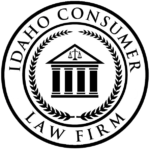The HHS Office of Inspector General (OIG) investigates allegations of civil false claims on behalf of the federal government. Based on their findings, the OIG has the ability to exclude entities and individuals from participating in federal backed health care programs, such as Medicare and Medicaid.
In lieu of exclusion, the OIG often enters into Corporate Integrity Agreements (CIAs). As the title would suggest, the philosophy is that these CIAs will ensure the entity’s or individual’s compliance with federal laws.
What is Included in a Corporate Integrity Agreement?
The OIG has identified several common elements of CIAs, which require the entity to:
- Hire a compliance officer and appoint a compliance committee;
- Develop written standards and policies;
- Implement a comprehensive employee training program;
- Retain an independent review organization to conduct annual reviews;
- Establish a confidential disclosure program;
- Restrict employment of ineligible persons;
- Report overpayments, reportable events, and ongoing investigations/legal proceedings;
- Provide an implementation report and annual reports to OIG on the status of the entity’s compliance activities;
- Be subject to the CIA for 5 years
Applying Lessons from CIAs
In a sense, these common CIA terms are things that a health care entity should be doing as part of a voluntary compliance program. Voluntary compliance programs can help your organization detect problems before they escalate to substantial violations. Additionally, preexisting voluntary compliance programs may factor into the OIG’s CIA requirements and possibly the settlement amounts.
